1789

Governor Samuel Johnston, born in Dundee, Scotland, but later of Edenton, was elected North Carolina's first United States senator by a joint ballot of the general assembly.
1789

Benjamin Hawkins of Grenville County (now Warren County) was elected United States senator from North Carolina by a joint ballot of the general assembly.
1790
Benjamin Hawkins took his seat in the Senate and Vice President John Adams administered the oath to support the Constitution. The statute regulating the taking of an oath, mandated by Article VI of the Constitution, was enacted on June 1, 1789.
1790
Samuel Johnston took his seat in the Senate and Vice President John Adams administered the oath to support the Constitution. Johnston and Benjamin Hawkins then drew lots to determine their Senate class assignments. Johnston drew the Class 2 seat (with a term to expire in 1793) while Hawkins drew the Class 3 seat (with a term to expire in 1795).
1804
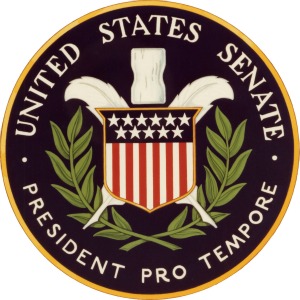
The Senate elected Jesse Franklin, born in Orange County, Virginia, but later of Warrenton, North Carolina, as its president pro tempore.
1818

Nathaniel Macon, of Monroe and later Warrenton, became chairman of the Senate Committee on Foreign Relations, serving until 1819. Macon, who began his Senate service in 1815, became chairman of the committee again in December 1825 and in December 1827.
1826

The Senate elected Nathaniel Macon as its president pro tempore. On January 2 and March 2, 1827, the Senate again elected Macon president pro tem.
1833

Bedford Brown of Browns Store became chairman of the Senate Committee on Agriculture (today's Committee on Agriculture, Nutrition, and Forestry), serving until 1836. Brown, a Democrat, resigned from the Senate in November 1840 because he could not obey the instructions of the Whig-controlled state legislature.
1836
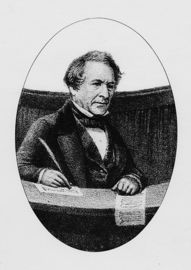
Asbury Dickins, originally of North Carolina but later of Philadelphia, took his oath as the newly elected secretary of the Senate and served until July 15, 1861. During his 25 years of service, Dickins professionalized the secretary's office and presided over the Senate on 20 occasions, a number matched by only one other secretary.
1845

William Henry Haywood, Jr., of Raleigh became chairman of the Senate Committee on Commerce (today's Committee on Commerce, Science, and Transportation), serving until 1846.
1861
North Carolina seceded from the Union.
1861

The Senate voted to expel North Carolina senators Thomas Lanier Clingman of Asheville and Thomas Bragg of Raleigh.
1868
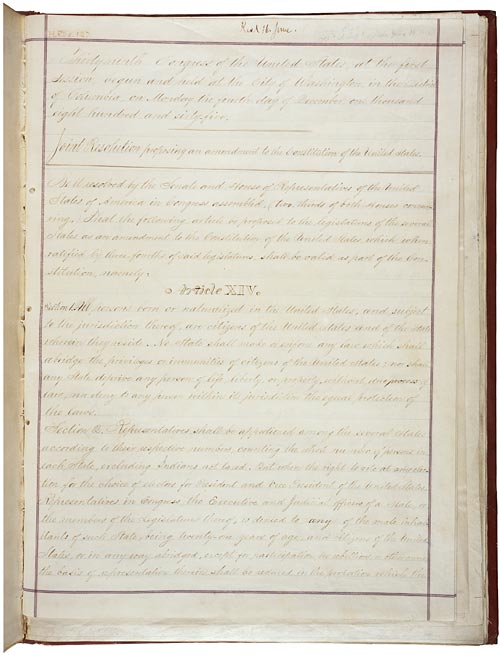
Congress passed the Omnibus Act to admit the states of North Carolina, South Carolina, Louisiana, Georgia, Alabama, and Florida, to representation in Congress. The statute, which conditioned admission to representation in Congress with ratification of the Fourteenth Amendment, was enacted over President Andrew Johnson's veto. North Carolina was admitted to representation in Congress on July 4, 1868.
1868

Joseph Carter Abbott, born in Concord, New Hampshire, but later of Wilmington, North Carolina, was elected to fill the Class 2 vacancy in the term beginning March 4, 1865, and set to expire on March 3, 1871. John Pool of Elizabeth City was elected to fill the Class 3 vacancy in the term beginning March 4, 1867, and set to expire on March 3, 1873. Both men took their seats on July 17, 1868.
1871

The Senate resolved the contested election case of defeated incumbent senator Joseph C. Abbott versus Zebulon Baird Vance of Charlotte and Matt Whitaker Ransom of Weldon. Vance had resigned on January 20, 1872, and the state legislature then elected Ransom in his place. The Senate denied Abbott's claim to the seat and voted the next day to seat Ransom.
1879

Zebulon Baird Vance took his oath of office and was seated as the Class 3 senator from North Carolina. Reelected twice more, Vance and fellow North Carolinian Matt W. Ransom served together in the Senate for 15 years (1879–1894). Vance had an eye removed in 1889 after an inflammation. Following his death in Washington, D.C., funeral services were held in the Senate Chamber on April 16, 1894.
1880
Matt W. Ransom became chairman of the Senate Committee on Commerce (today's Committee on Commerce, Science, and Transportation), serving until 1881. Ransom chaired the committee again from 1893 to 1895.
1883
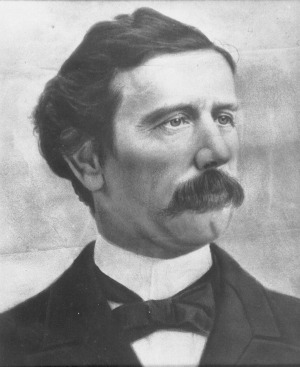
William P. Canaday of Wilmington, North Carolina, was elected Senate sergeant at arms and served until June 30, 1890.
1893
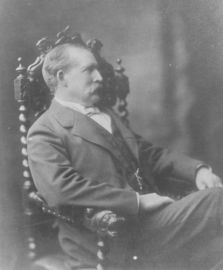
The Senate elected former Confederate army general and North Carolina representative (1881–1887) William Ruffin Cox as the secretary of the Senate. Cox served in that office until his retirement in 1900 and twice presided over the Senate.
1901

Furnifold M. Simmons, of Raleigh, Trenton, and New Bern, began the first of his five Senate terms. At the end of his service in 1931, Simmons was the state's longest serving United States senator.
1903

Lee Slater Overman of Salisbury entered the Senate. Reelected four times, Overman and fellow North Carolinian Furnifold M. Simmons represented the state in the next 14 Congresses (58th–71st). Following Overman's death in Washington, D.C., on December 12, 1930, his funeral service was held in the Senate Chamber.
1913
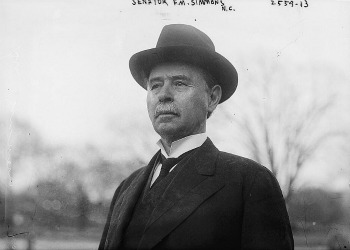
Furnifold M. Simmons became chairman of the Senate Committee on Finance, serving until 1919.
1913
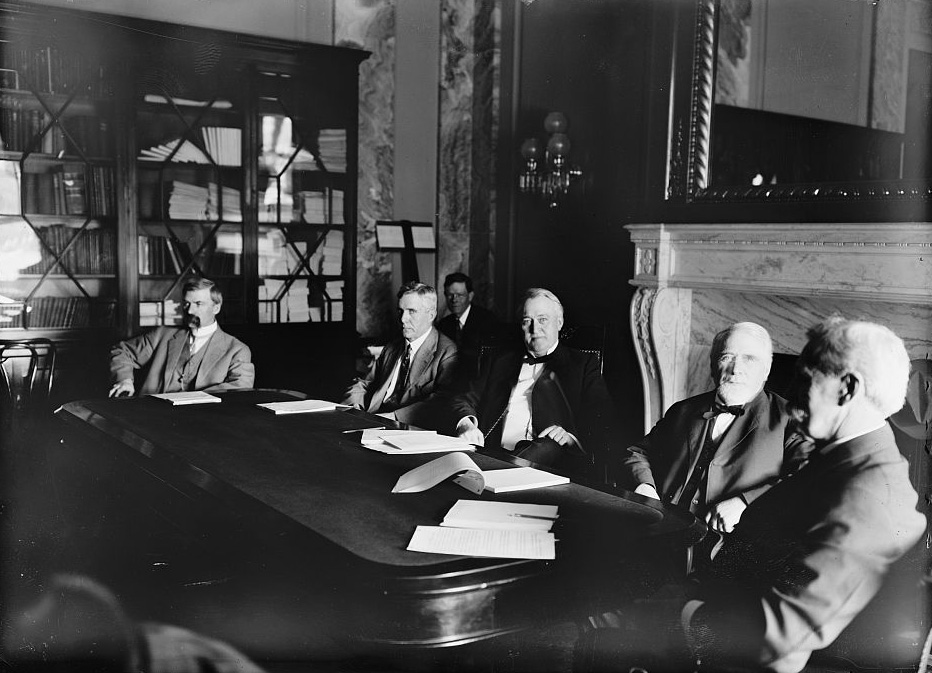
Lee Slater Overman became chairman of the Senate Committee on Rules (today's Committee on Rules and Administration), serving until 1919.
1914
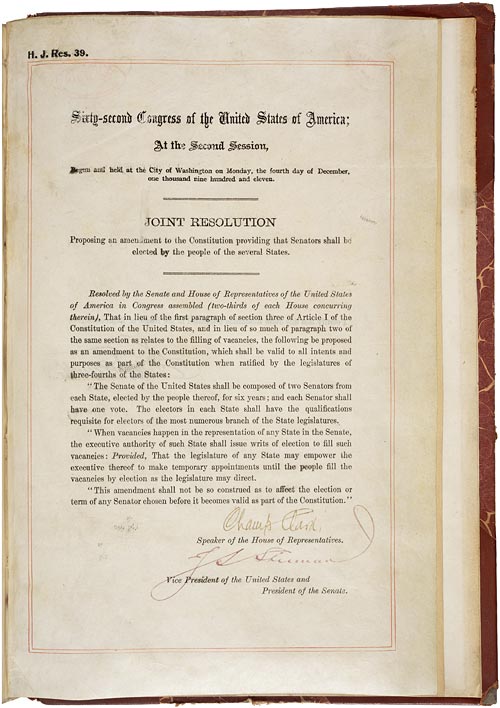
In accordance with the recently adopted Seventeenth Amendment, Lee Slater Overman, a member of the Senate since 1903, became North Carolina's first directly elected senator.
1916
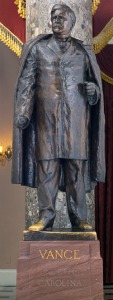
The Senate moved to accept a bronze statue of Senator Zebulon Baird Vance by Gutzon Borglum for placement in Congress's National Statuary Hall Collection.
1932
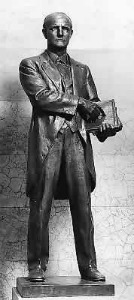
The Senate moved to accept a bronze statue of North Carolina governor and educator Charles Brantley Aycock by Charles Keck for placement in Congress's National Statuary Hall Collection.
1933

The petition of George M. Pritchard of Asheville, contesting the November 1930 election of Josiah William Bailey of Raleigh, was dismissed by the Senate. Pritchard, son of former senator Jeter Connelly Pritchard (1895–1903), had entered his petition in March 1931 but Bailey, who took his oath of office on December 7, 1931, retained his seat and was reelected three more times.
1939
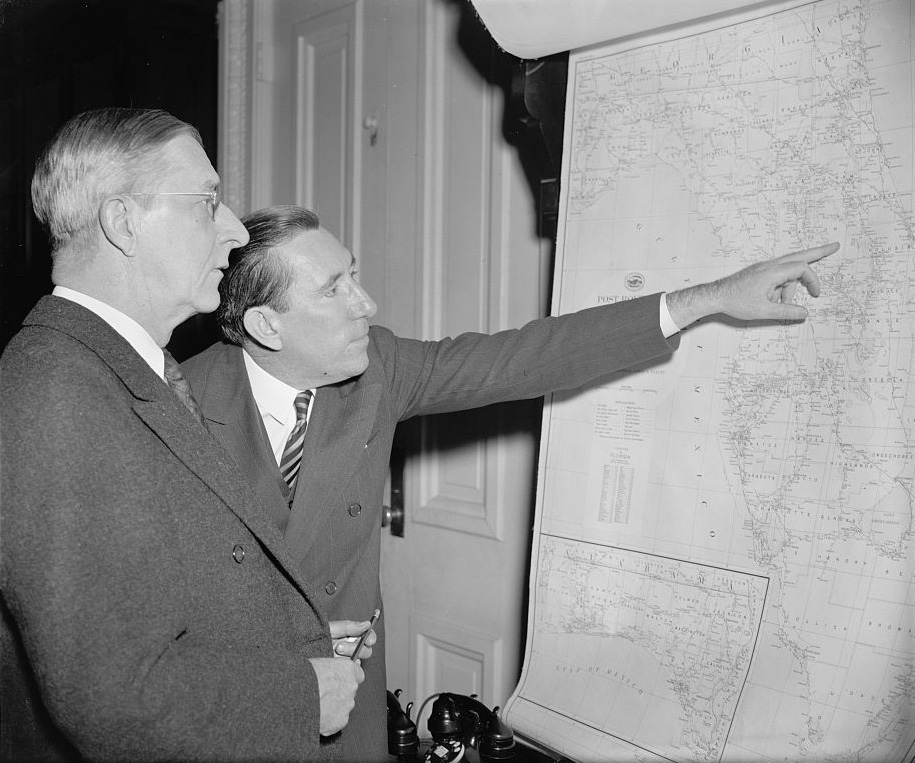
Josiah W. Bailey became chairman of the Senate Committee on Commerce (today's Committee on Commerce, Science, and Transportation), serving until 1946.
1949

Senator Clyde Roark Hoey of Shelby, chairman of the Investigations Subcommittee of the Committee on Expenditures in the Executive Departments, opened public hearings into allegations of influence peddling to secure government contracts.
1954

Samuel James Ervin, Jr., of Morganton, was appointed by the governor to fill the vacancy caused by death of Senator Clyde R. Hoey. Ervin took his seat on June 11, 1954, and subsequently won an uncontested election to fill the remainder of Hoey's term. Reelected three times, Ervin resigned his seat on December 31, 1974.
1956

Nineteen southern senators, including North Carolina's Samuel J. Ervin Jr. and William Kerr Scott, signed "the Declaration of Constitutional Principles," known as the "Southern Manifesto" in opposition to the Supreme Court's 1954 ruling in Brown v. Board of Education. Members read the entire text of the manifesto into the Congressional Record.
1963

Senator B. Everett Jordan was elected chairman of the Committee on Rules and Administration after only five years of Senate service and held that position for the next decade.
1963
The Senate Committee on Rules and Administration, chaired by B. Everett Jordan, opened its investigation of senior Senate staff member and Lyndon B. Johnson confidant Bobby Baker. The information revealed in the hearings encouraged the Senate to adopt a formal ethics code.
1972
Samuel J. Ervin, Jr., became chairman of the Senate Committee on Government Operations (today's Committee on Homeland Security and Governmental Affairs), a position he held until his resignation on December 31, 1974.
1973

Jesse Helms of Raleigh began the first of his five Senate terms. Helms, who previously had worked for North Carolina senators Willis Smith and Alton Lennon, served for 30 years, cast over 11,000 roll-call votes, and received the Golden Gavel Award in October 1973 for presiding over the Senate for 100 hours in a single session. Helms is the state's longest-serving popularly elected U.S. senator, having served for 30 years.
1973
The Senate adopted a resolution creating the Select Committee on Presidential Campaign Activities, more commonly known as the Senate Watergate committee. Chaired by North Carolina senator Samuel J. Ervin, Jr., the committee investigated the Watergate burglary and, in July 1973, the committee's televised hearings revealed the existence of a secret White House taping system.
1978
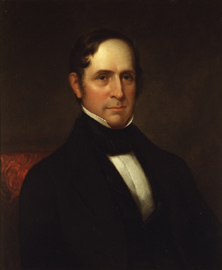
A portrait of Senator Willie Person Mangum by James Reid Lambdin was purchased by U.S. Senate Commission on Art.
1981
Jesse Helms became chairman of the Senate Committee on Agriculture, Nutrition, and Forestry, serving until 1987.
1986

Senator John Porter East of Springfield, Illinois, but later of Greenville, North Carolina, died of carbon monoxide poisoning in what was later ruled to be a suicide. East was elected to the Senate in 1981 and used a wheelchair as a result of contracting polio in the mid 1950s.
1988
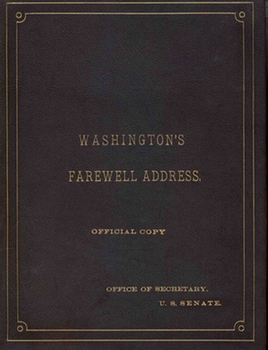
Senator James Terry Sanford read George Washington's Farewell Address on the floor of the Senate, a tradition dating to 1862.
1988
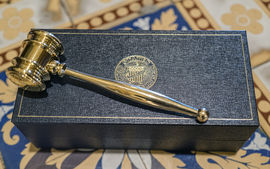
Senator J. Terry Sanford of Durham received the Golden Gavel Award for presiding over the Senate for at least 100 hours in one session.
1991

J. Terry Sanford became chairman of the Senate Select Committee on Ethics, serving until 1993.
1995
Jesse Helms became chairman of the Senate Committee on Foreign Relations, serving until 2001.
1995
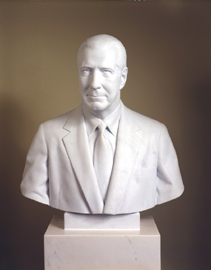
A marble bust of Vice President Spiro T. Agnew by North Carolina sculptor William Frederick Behrends was added to the Senate's Vice Presidential Bust Collection.
1996
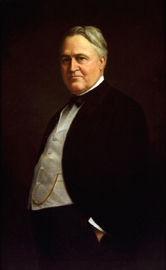
A portrait of Senator Lee Slater Overman was donated by the senator's family to the Senate Art Collection.
2003

Elizabeth Hanford Dole of Salisbury, a former secretary of transportation (1983–1987) and secretary of labor (1989–1990), and North Carolina's first woman senator, received the Golden Gavel Award for presiding over the Senate for 100 hours in a single session.
2004

Senator John Edwards of Raleigh was nominated for vice president of the United States on the Democratic Party ticket headed by another incumbent senator, John F. Kerry of Massachusetts. The ticket was defeated in the general election and Edwards's single term in the Senate ended on January 3, 2005.
2004
Senate Republicans elected Elizabeth Dole as chair of the National Republican Senatorial Committee, a position she held until 2007.
2005

Senator Richard Burr, born in Charlottesville, Virginia, but later of Winston Salem, read George Washington's Farewell Address on the floor of the Senate, a tradition dating to 1862.
2005

Senator Richard Burr received his first Golden Gavel Award for presiding over the Senate for 100 hours in a single session. In September 2006 Burr received a second gavel.
2024
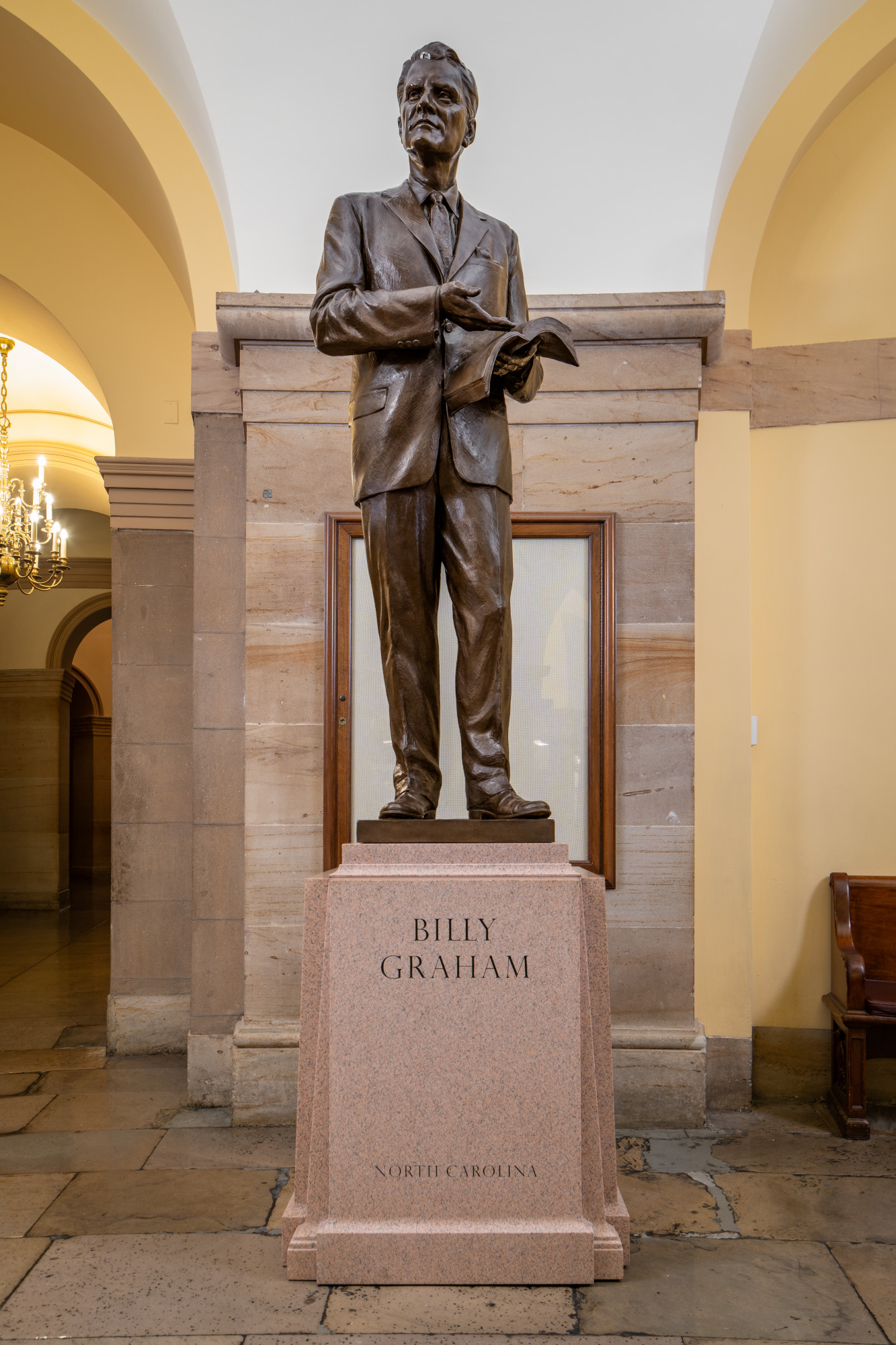
A statue of the Reverend Billy Graham by Chas Fagan was unveiled at the Capitol as part of the National Statuary Hall Collection, replacing the statue of Charles Brantley Aycock that was unveiled in 1932.